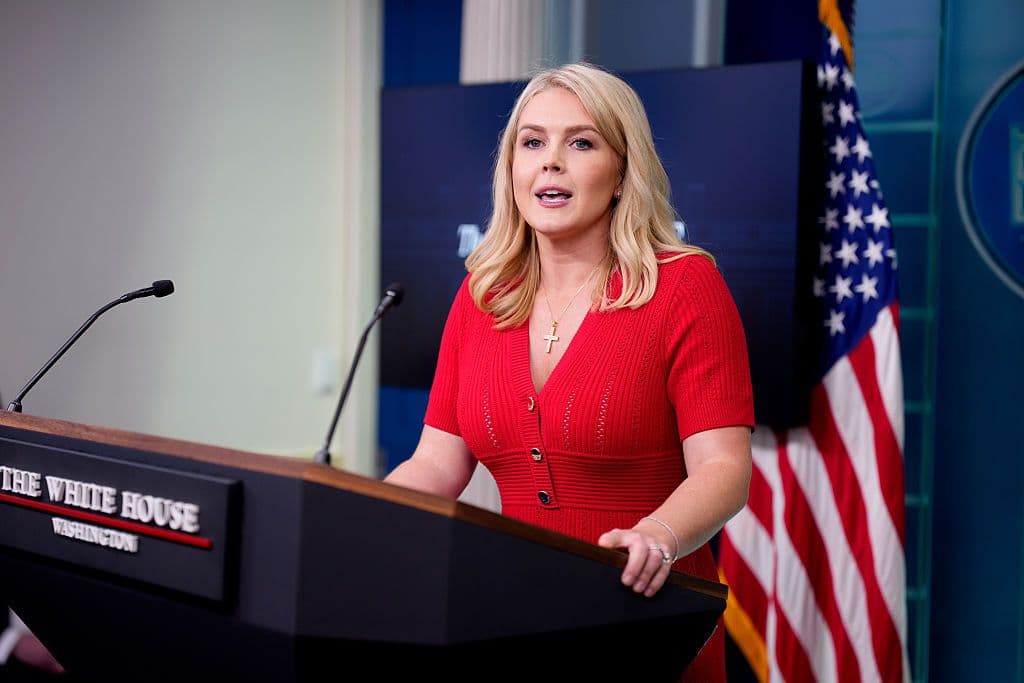Trump hopes next Russia-Ukraine talks will 'move ball forward,' White House says as Moscow further delays peace memo

U.S. President Donald Trump hopes that the forthcoming peace negotiations between Ukraine and Russia will "move the ball forward" on his efforts to broker a peace deal, White House Press Secretary Karoline Leavitt said on May 29.
Moscow proposed that the next round of direct talks be held on June 2 in Istanbul, where Russia will present a long-awaited memorandum outlining its conditions for a ceasefire. President Volodymyr Zelensky has criticized Russia's delay in releasing its terms as a stalling tactic.
Trump claimed on May 28 that it would "take about two weeks, or week and a half," to know if Russian President Vladimir Putin was stalling or truly interested in peace.
In response to a question about Trump's recent comments, Leavitt said that the U.S. expects the Istanbul talks to go forward.
"It is my understanding and it is our hope that Russia and Ukraine will engage in direct talks and negotiations next week in Istanbul," she told reporters.
"And we believe that meeting is going to take place, and that is a meeting the president encouraged and urged, for these two sides to come together and negotiate directly. And the president has been clear from the very beginning of this conflict that he wants to see this conflict solved on the negotiating table, not on the battlefield."
Trump has expressed his hopes for a negotiated settlement to both Putin and Zelensky in private and public comments, Leavitt said.
"So hopefully next week it will move the ball forward in this effort."
Leavitt did not confirm whether or not Trump would be participating directly in the next round of peace talks, saying she would update the press if the president chose to send a representative.
Washington's attempts to broker a peace deal have not yielded any substantial breakthroughs thus far. For months, Moscow has resisted pressure to impose a full 30-day ceasefire, instead proposing (and subsequently violating) partial short-term truces, calling for further talks, and insisting Kyiv make extreme concessions to maximalist demands.
Meanwhile, Russia has dramatically escalated drone and missile attacks against civilian targets in Ukraine.
While Ukraine has been ready to accept a U.S.-proposed 30-day ceasefire since March 11, the Kremlin has refused, dragging out the process with inconclusive talks while building up its forces in preparation for another military offensive in Ukraine this summer.
During a phone call with Putin on May 19, Trump was told that a "memorandum of peace" outlining conditions for a ceasefire would be delivered shortly. The Kremlin's failure to deliver the memorandum amid mass attacks signaled Russia's lack of urgency regarding the peace process.
Trump has at times criticized Putin for appearing to delay the negotiations, but has never followed through on any of his sanctions threats. Trump again threatened sanctions after Russia launched three days of mass attacks against Ukraine in a row, calling Putin "crazy" and warning that his actions could lead to "the downfall of Russia."
But on May 28, Trump said he would not impose new sanctions on Russia due to the forthcoming peace talks in Istanbul.
"If I think I'm close to getting a deal, I don't want to screw it up by doing that," he said.












